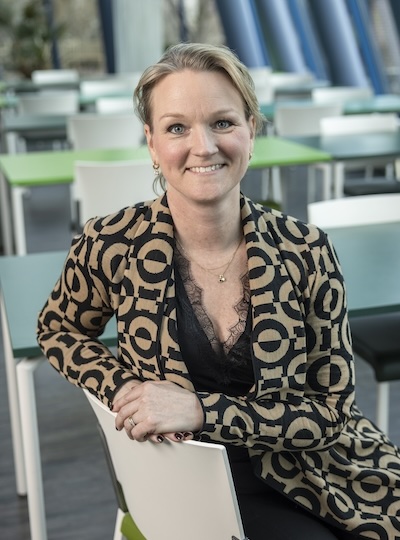"No plan survives contact with the enemy," said the military strategist Von Clausewitz two centuries ago. Similarly, many sustainability ambitions disappear when decisions with financial consequences have to be made. Yes, sustainability is high on the agenda of most managers and directors. But how serious and concrete is it?
Focusing on integrated value goes further than the typical CSR approach: by expressing social and ecological issues financially, their size and importance become more visible and they can become central to the business strategy. This means a different dashboard, with ditto consequences for measuring, reporting and control instruments. But how do you make that concrete?
Why focus on integrated value?
In our previous book Principles of Sustainable Finance (2019), Prof. Dirk Schoenmaker (RSM) and I already indicated why it is important to measure social (S) and ecological (E) value in addition to financial value (F) and ideally to steer towards it: integrated value = F + S + E. It enables you to gain a better insight into value creation, taking into account internalization processes, competitive positions and the license to operate. As a result, you can make better decisions that work out well in the short and long term. And yes, that is also relevant for those who are purely financially interested.
Both professionals and students were enthusiastic about the book, but they also had criticisms. Although we showed how E and S affect F (simple materiality), we did not show how E and S themselves could be calculated (double materiality). And so there had to be a second book.
Measure integrated value and integrate it into financial decisions
In our new book Corporate Finance for Long-Term Value (2023), we cover the common corporate finance topics, such as investment decisions (DCFs), asset structure and M&A. But unlike existing books, we always do this in three steps:
- First, we approach the topic purely financial (F);
- Next, we discuss the influence of E and S on F;
- And finally, we consider the valuation of E and S, both separately and added to F.
In concrete terms, this means, for example, that you can map out the trade-offs between E, S and F in an investment decision. You can also show how negative externalities on E and S increase your leverage in a similar way to additional financial debt. The approach also shows how both positive and negative E and S can represent an option value.
Of course, data is a challenge, but not nearly as big as people think. If you really want to, you can get started with this. But our book is an academic textbook and not yet a handbook for the CFO. So, mindful of Clausewitz, we have to look for the weaknesses in our ideas and test them in practice as much as possible.
Expert deedback: strong methods, but who's going to do this?
 At the end of September, we organized an event around the launch of our book, moderated by journalist and writer Jeroen Smit (known for books about Ahold and Unilever). Dirk and I presented the methods of our book. Janneke Hermes, CFO of Gasunie, then gave a nice speech about how she applies these methods and has in fact taken the step as CFO to become Chief Value Officer. Her conclusion: don't wait for someone to ask, but just get started and experiment. Just do it!
At the end of September, we organized an event around the launch of our book, moderated by journalist and writer Jeroen Smit (known for books about Ahold and Unilever). Dirk and I presented the methods of our book. Janneke Hermes, CFO of Gasunie, then gave a nice speech about how she applies these methods and has in fact taken the step as CFO to become Chief Value Officer. Her conclusion: don't wait for someone to ask, but just get started and experiment. Just do it!
But it wasn't all consent. Professors Abe de Jong (University of Groningen) and Barbara Baarsma (University of Amsterdam) indicated that although we have written a 'beautiful cookbook', they see serious challenges in its implementation. Abe de Jong stated that corporate governance is not geared to this. Barbara Baarsma pointed out the high degree of reluctance among administrators to deviate from the beaten track. Jeroen Smit added that, according to him, many managers are 'excellent sheep'. They are very good at 'the trick' with which they got to the top (optimization of existing processes), but they lack the broad view, creativity and guts needed to do things differently. In short, most managers are not like Janneke Hermes.
Who wants to do this?
We need more Jannekes and I'm sure there are quite some out there. Hence our appeal to CFOs and other directors who want to get started with this: contact us! We would be happy to talk to you. What are your challenges? What do you need? That's how you help us help you. Because with your input, we can write a practical 'how to' book for the CFO, with both calculations and practical tools. We have already scheduled the first meetings with CFOs.
Where are the other chief value officers? We'd love to hear from you! Feel free to email me on w.schramade@nyenrode.nl.
Tags
Related programs
-
Executive ESG Program
Start date: To be determinedLanguage:- English
Location:- Breukelen
The latest ESG knowledge and insights to transform your organization and be able to increase your positive impact on people, planet and society.
View program

